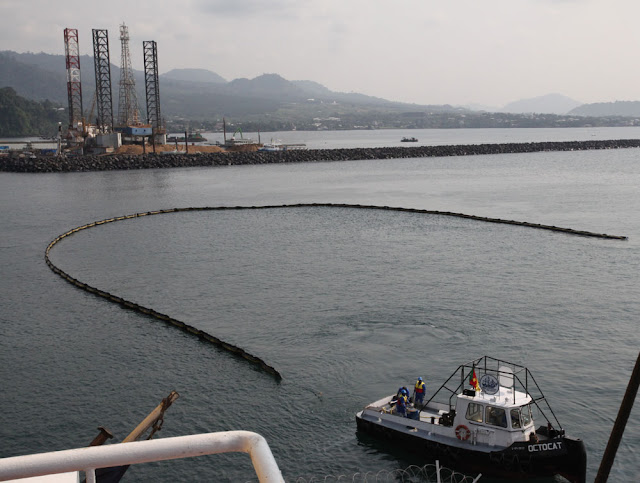Only Deliberate Disposal at Sea is an Offence Under the Canadian Environmental Protection Act, 1999
A recent case from British Columbia
(R. v. MV Marathassa, 2018 BCPC 237) has confirmed that disposal at sea
is a mens rea offence – i.e. a ship owner must intend to
dispose of a prohibited substance, and the crown must lead evidence accordingly,
in order to secure a conviction under the Canadian
Environmental Protection Act, 1999, S.C., c. 33.
The facts of the case are relatively
straightforward. The MV "Marathassa" was charged with, among other
things, violating section 125(1) of the Canadian Environmental
Protection Act, which prohibits the unauthorized disposal of a substance at
sea:
125 (1) No person or ship
shall dispose of a substance in an area of the sea referred to in any of
paragraphs 122(2)(a) to (e) unless:
(a) the substance is waste or other
matter; and
(b) the disposal is done in
accordance with a Canadian permit.
The term “disposal” is defined in
section 122 of the Act as follows:
disposal means
(a) the disposal of a
substance at sea from a ship, an aircraft, a platform or another structure…
Notably, that definition, on
its face, does not require the disposal to be deliberate or intentional. On
the other hand, the pre-2005 definition of “disposal” was explicit that such
disposal must be deliberate:
disposal means
(a) the deliberate disposal of a
substance at sea from a ship, an aircraft a platform or another structure…[emphasis
mine].
Similarly, the London
Dumping Convention, the international convention that gave rise to the Canadian Environmental Protection Act,
1999, only applies to deliberate disposal at sea:
Dumping” means:
(i) any deliberate disposal at sea of wastes or other matter from vessels,
aircraft, platforms or other man-made structures at sea:
(ii) any deliberate disposal at sea of vessels, aircraft, platforms or other
man-made structures at sea. [emphasis mine].
Accordingly, the key issue as
summarized by the court was “whether Parliament intended by the removal of the word “deliberate” in 2005, to convert a mens
rea offence into a strict liability offence”.
In agreeing with the
defendant, the BC Provincial Court concluded that disposal must still be “deliberate”
under the Canadian Environmental Protection Act, 1999, notwithstanding
the removal of that word in the current version of the Act.
Because the
crown led no evidence on the element of intent, the MV
"Marathassa” was successful in its application for a directed verdict.
In reaching its decision, the
court was influenced by the Parliamentary Hansards relating to the 2005 amendment, the fact that the 2005 amendments specifically
stated that they implemented the London
Dumping Convention and its Protocol, and the longstanding legislative scheme that required disposal to be deliberate.
In summary, this case will be
of important precedential value going forward because it effectively reads the word “deliberate” into the definition of “disposal”
in section 122 of the Canadian Environmental Protection Act, 1999.
Here's a link to the case:
 |
| Spill Containment |